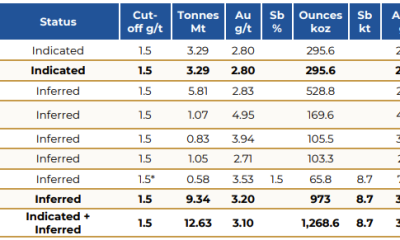Uncategorized
Book Bits: 25 March 2023
● Better Money: Gold, Fiat, or Bitcoin? Lawrence H. White Summary via publisher (Cambridge U. Press) The recent rise of dollar, pound, and euro inflation…
● Better Money: Gold, Fiat, or Bitcoin?
Lawrence H. White
Summary via publisher (Cambridge U. Press)
The recent rise of dollar, pound, and euro inflation rates has rekindled the debate over potential alternative monies, particularly gold and Bitcoin. Though Bitcoin has been much discussed in recent years, a basic understanding of how it and gold would work as monetary standards is rare. Accessibly written by a pioneering economist, Better Money explains and evaluates gold, fiat, and Bitcoin standards without hype. White uses simple supply-and-demand analysis to explain how these standards work, evaluating their relative merits and explaining their response to shocks, allowing for informed comparisons between them. This book addresses common misunderstandings of the gold standard and Bitcoin, using historical evidence to review the history of money with emphasis on the contest between market and government provision. Known for his work on alternative monetary institutions, White offers a reasoned discussion of which standard is most likely to provide a better money.
● The New Roaring Twenties: Prosper in Volatile Times
Paul Zane Pilzer and Stephen P. Jarchow
Summary via publisher (Matt Holt/ Penguin Random House)
Not unlike the famed decade of the previous century, our next ten years will be filled with striking cultural shifts, new challenges, and, ultimately, abundant financial opportunities. Paul Zane Pilzer, the economist/entrepreneur and New York Times bestselling author of 13 books, sees a better world on the horizon. In The New Roaring Twenties he imparts inspiration and a new template for escaping the shadow of a global pandemic, with all its fallout, and stepping into the resplendent possibilities of the future. Pilzer details 12 economic and societal pillars that will be essential for navigating our new world
● Business and Populism: The Odd Couple
Magnus Feldmann and Glenn Morgan (editors)
Summary via publisher (Oxford U. Press)
Business and Populism analyses the relationship between right wing populism and business with a focus on business responses and strategies in the face of the global populist turn. In the neoliberal era business had become accustomed to favourable economic policy regimes and governance arrangements that facilitated business influence on key policy issues. The rise of populist movements in various parts of the world is widely perceived as a significant challenge to policymaking, mainstream political parties and even to liberal democracy. Yet we know very little about the impact of populism on business, beyond the fact that the anti-elite challenge of populism frequently targets business with policies to restrict globalization, outsourcing, and labour migration whilst at the same time embracing capitalism, low taxes, and deregulated markets.
● Fool Me Once: Scams, Stories, and Secrets from the Trillion-Dollar Fraud Industry
Kelly Richmond Pope
Review via The Wall Street Journal
The truth is that honest people can be and are cheated all the time. In “Fool Me Once: Scams, Stories, and Secrets From the Trillion-Dollar Fraud Industry,” Kelly Richmond Pope explores how this happens. Small-business owners are blindsided when their bookkeeper turns out to have been cooking the books; multinational financial institutions find executives funneling out cash; the government of a small city discovers that an official has been skimming from its accounts for decades. Ms. Pope, a professor of forensic accounting at DePaul University, even includes a class of “accidental” perpetrator for those who start out as inadvertent beneficiaries of a mistake but who, rather than confessing, decide to lean into the opportunity.
● Mixed Signals: How Incentives Really Work
Uri Gneezy
Summary via publisher (Yale U. Press)
Incentives send powerful signals that aim to influence behavior. But often there is a conflict between what we say and what we do in response to these incentives. The result: mixed signals. Consider the CEO who urges teamwork but designs incentives for individual success, who invites innovation but punishes failure, who emphasizes quality but pays for quantity. Employing real-world scenarios just like this to illustrate this everyday phenomenon, behavioral economist Uri Gneezy explains why incentives often fail and demonstrates how the right incentives can change behavior by aligning with signals for better results.
Please note that the links to books above are affiliate links with Amazon.com and James Picerno (a.k.a. The Capital Spectator) earns money if you buy one of the titles listed. Also note that you will not pay extra for a book even though it generates revenue for The Capital Spectator. By purchasing books through this site, you provide support for The Capital Spectator’s free content. Thank you!



















